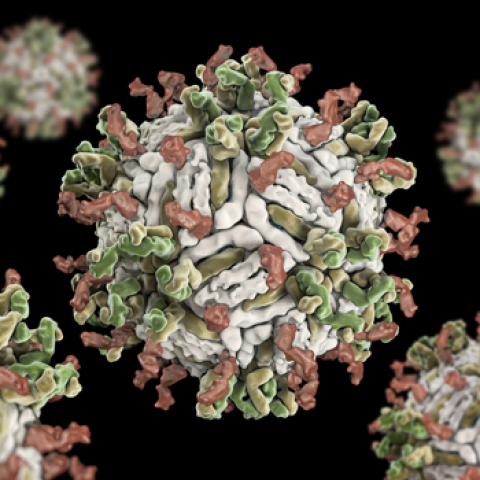Interdisciplinary Initiatives Program Round 8 - 2016
Shirit Einav, Medicine (Infectious Diseases) and Microbiology & Immunology
Purvesh Khatri, Medicine (Biomedical Informatics)
Stephen Quake, Bioengineering
Holden Maecker, Microbiology & Immunology
Viral sepsis is a severe, whole body inflammatory response to viral infections, as those caused by dengue virus (DENV), influenza virus and Ebola virus; infections that represent major threats to global health. Close monitoring and early administration of supportive care reduce morbidity and mortality in these patients, however, there are no effective means to accurately predict which patients will progress to viral sepsis. The prevailing approach for identifying patients that are at risk to progress to viral sepsis relies on clinical symptoms and signs, which are neither sensitive nor specific. This results in ineffective allocation of resources and relatively high morbidity and mortality rates. There is therefore an urgent need for novel strategies to identify patients who are at risk to develop viral sepsis. Our overall goal is to transform this paradigm by better understanding host responses to viral infections and utilizing this knowledge to: i) develop diagnostic and prognostic tools for early identification of patients at risk of developing viral sepsis, and; ii) assist the development of antiviral and vaccine strategies.
The main goal of this project is to identify a common gene signature for prediction of patients at risk for viral sepsis. This project will focus on dengue infection as a disease model first and subsequently expand to other viral infections. DENV is estimated to infect ~400 million people annually, of whom ~500,000, most commonly children, develop severe dengue every year. Our preliminary data indicate that our novel bioinformatics approach can yield a putative gene signature for prediction of severe dengue infection. Aim 1 will optimize this gene signature and validate it in samples of dengue patients. Aim 2 will characterize the kinetics and quality of host immune responses during the course of natural dengue infection. Aim 3 will leverage large amounts of publicly-available data for other severe viral and bacterial infections with data generated from this proposal to identify host responses that are either unique to DENV or common to viral sepsis but distinct from bacterial sepsis. To achieve these Aims we will integrate advanced bioinformatics approaches developed by us with innovative technologies that enable a high-fidelity monitoring of host immune responses, characterization of viral populations and viral burden, and identification of specific cell populations. In addition, we will use samples collected from a new cohort of dengue patients that we have been establishing in Cali/Colombia. These advanced technologies and unique resources distinguish this proposal from prior efforts to identify such prediction signatures and establish the feasibility of this project. Moreover, we have assembled a team with interdisciplinary expertise that is uniquely positioned to successfully accomplish this project’s Aims.
Taken together, this interdisciplinary work will shed light on unexplored mechanisms of viral infection, will further novel technologies that we have been developing, and has a potential to improve human health.





